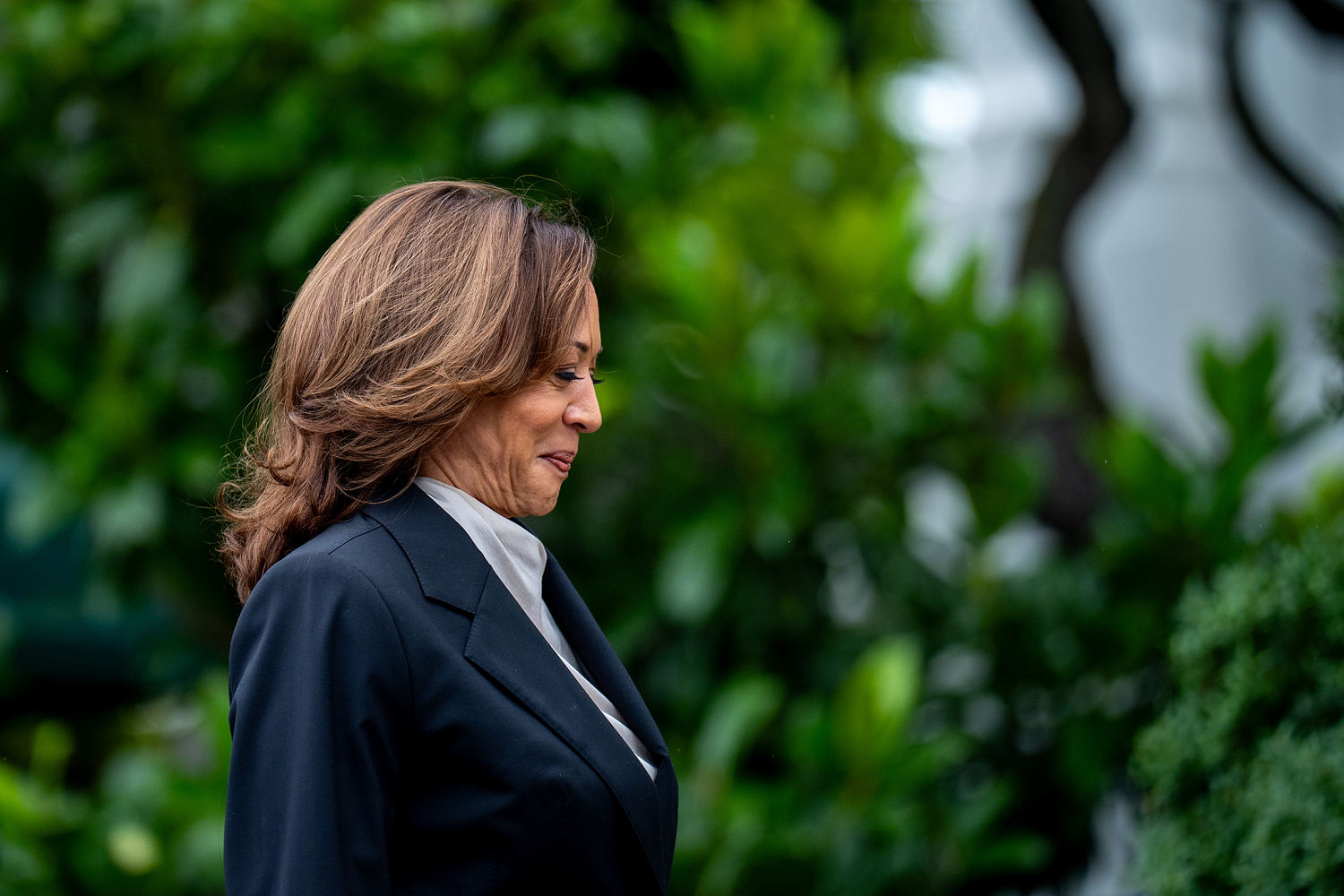
Kamala Harris is launching her White House bid pretty much where Joe Biden left off: a few points behind Donald Trump nationally.
Democrats obviously hope that Harris’ presidential campaign rollout will change how voters view her and this race, producing a meaningful polling improvement. And a new poll from Reuters/Ipsos (showing Harris at 44% among registered voters and Trump at 42%) very modestly, and tentatively, gives fuel to their optimism.
But previous polling hints at what could be a potentially significant difference in this new matchup. Essentially, they suggest that, faced with a Harris-Trump contest, the number of voters ready to pick sides may go up.
Take our own national NBC News survey, conducted two weeks ago. Against Biden, Trump led 45% to 43%; against Harris, Trump was ahead 47% to 45% (both results within the margin of error). It’s the same two-point spread, but Harris’ vote share is two points higher than Biden’s, just as Trump’s increases by two points with Harris as an opponent.
Similar shifts can be found elsewhere. A Quinnipiac University poll conducted mostly before Biden’s exit and released Monday, for instance, had Trump leading Biden 48% to 45%; with Harris subbed in, the result was 49% to 47% in favor of Trump. And a Morning Consult poll conducted after Biden’s withdrawal had Trump up 47% to 45% against Harris, while its previous survey had Trump ahead of Biden 47% to 41%.
In total, six major polls over the last month have found that the combined vote share in a Harris-Trump trial heat is higher than in a Biden-Trump one:
Not all recent polls have found this, though a big reason is that several prominent pollsters ask undecided voters which candidate they are leaning toward and then record these voters as supporters of the candidate they pick. This produces poll results in which the combined Democratic and Republican vote shares add up to 100% — leaving no room for variance when different match-ups are tested.
Additionally, a one-day poll from NPR/PBS NewsHour/Marist College released Tuesday found a stark rise in the undecided vote share with Harris as the Democratic candidate. But a change in methodology may account for it.
Why more voters would be more ready to choose sides with Harris as the Democratic nominee is an interesting question. We’re talking about small overall shifts here, so precise demographic pinpointing is a challenge.
In our NBC News poll, though, two key groups did stand out: Black voters and Republican voters who say they aren’t satisfied with Trump as their nominee:
Biden led by 57 points with Black voters, while Harris held a 64-point advantage in the NBC News poll. Among dissatisfied Republicans, Trump’s lead went from 46 points against Biden to 47 points against Harris.
It seems that Harris’ entry into the race may be motivating a key part of each party’s traditional base to get off the sidelines and rejoin their partisan team. The net effect in our poll (and others) is basically zero, with both Harris and Trump gaining new support.
But more broadly, it suggests that there are voters across the political spectrum willing to reconsider the 2024 presidential race with Harris in it. And that means, as the electorate processes this candidate switch, that each side may have potential it previously didn’t to grow its pie further and create a clear advantage.







